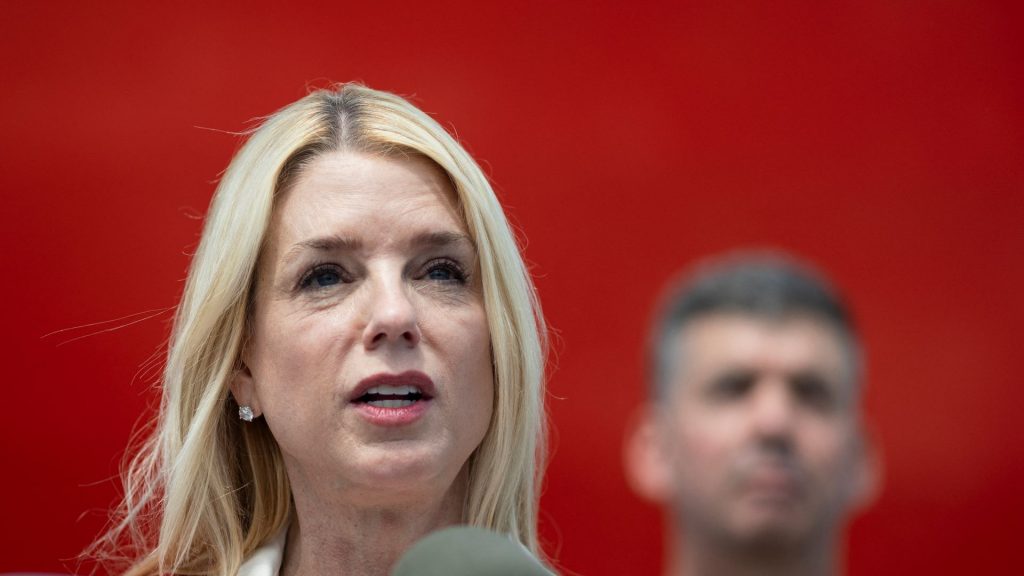Bondi rescinds journalist protections amid focus on government leaks

Attorney General Pam Bondi is rescinding a Biden-era policy protecting journalists from subpoenas, according to an internal memo obtained by Axios. The memo states that the U.S. government has suffered numerous leaks of sensitive and classified information to the media.
“This conduct is illegal and wrong, and it must stop,” Bondi said in the memo.
Trump memo cites book leak
The decision comes after President Donald Trump signed a memo on April 9 detailing the case of Miles Taylor — a former federal service employee accused of illegally leaking classified information to sell his book.
“The perpetrators of these leaks aid our foreign adversaries by spilling sensitive and sometimes classified information onto the internet. The damage is significant and irreversible. Accountability, including criminal prosecutions, is necessary to set a new course,” Bondi’s memo states, calling the conduct “treasonous.”
Garland’s prior rule rolled back
Under the Biden administration, then-Attorney General Merrick Garland decided the Department of Justice would not seek reporters’ records or compel their testimony to identify administration leakers.
Bondi’s new policy demands that members of the news media answer subpoenas and cooperate with court orders and search warrants — if the DOJ approves the techniques while investigating government leaks.
“Members of the news media are presumptively entitled to advance notice of such investigative activities, subpoenas are to be narrowly drawn, and warrants must include protocols designed to limit the scope of intrusion into potentially protected materials or news gathering activities,” the memo states.
Seizures and arrests on the table
The DOJ could seize reporters’ phones, detain them for questioning or even arrest members of the news media.
The memo states that the attorney general will consider several factors when deciding if and when to use these techniques. They include whether the DOJ believes a crime has occurred and the information will lead to prosecution, whether prosecutors have tried all other avenues to obtain the information from other sources and whether the government has tried negotiating with the affected member of the media.
Press freedom advocates respond
In response to the new policy, Reporters Committee for Freedom of the Press President Bruce D. Brown released a statement.
“Some of the most consequential reporting in U.S. history — from Watergate to warrantless wiretapping after 9/11 — was and continues to be made possible because reporters have been able to protect the identities of confidential sources and uncover and report stories that matter to people across the political spectrum,” Brown said.
“Strong protections for journalists serve the American public by safeguarding the free flow of information,” he continued. “We’ll wait to see what the policy looks like, but we know reporters will still do their jobs, and there is no shortage of legal support to back them up.”
Leaks also reported at Pentagon, intelligence agency
Earlier during the week of April 20, Secretary of Defense Pete Hegseth said leakers want to destroy Trump’s agenda. Three of Hegseth’s former Pentagon aides were let go after information came to light that Hegseth used the Signal app to disclose sensitive U.S. military operations to his wife, brother and personal attorney.
Director of National Intelligence Tulsi Gabbard revealed on her official X account in March that her agency has suffered numerous leaks. She listed several examples, including accusing one person of leaking classified information to The Huffington Post and another of sharing information on Israel and Iran to The Washington Post, among others.





